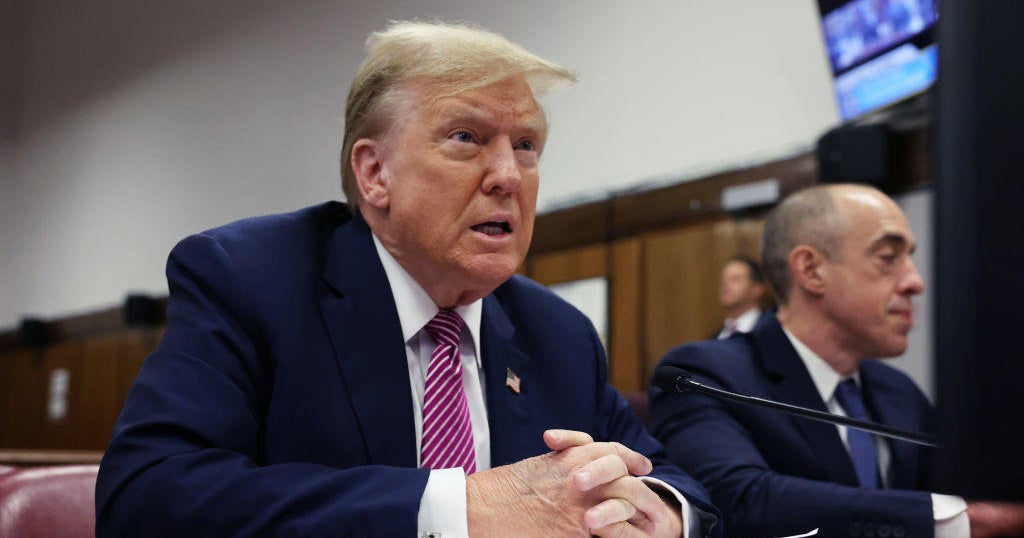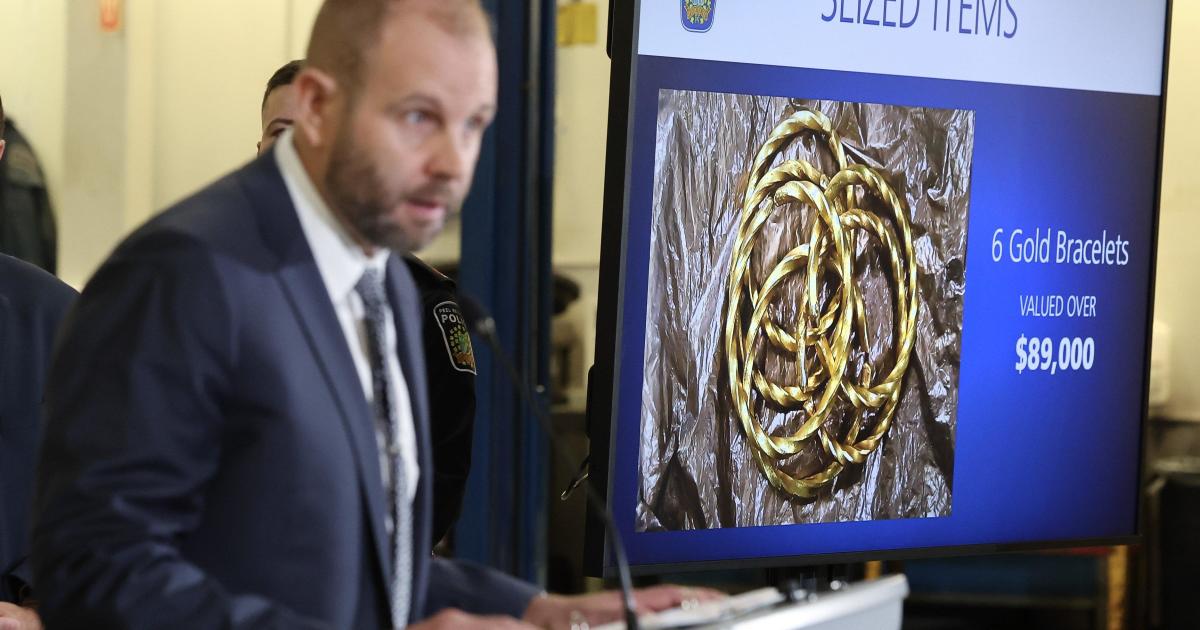Why are jail phone calls so expensive?
When you ask Shawn Barrera-Leaf how long her 27-year-old son, Gabe, has been incarcerated, she responds with precise accuracy. "Nine-hundred and seventy-five days," she told CBS News last month.
Barrera-Leaf, 57, has been tracking another number that's also steadily increasing. After combing through credit card and bank account statements, Barrera-Leaf said she and her husband have spent $14,268 over the past two years so Gabe can make calls from behind bars.
Gabe has spent time in three different Michigan county facilities while serving a sentence for child pornography charges. That includes nearly three months in Isabella County Jail last year, where it cost Barrera-Leaf $18.97 to speak with him for 15 minutes — one of the highest rates nationwide, according to a 2018 report by the Prison Policy Initiative.
Advocates say the price of using telephones behind bars could mean cutting off communication with loved ones who serve as support systems and aid with rehabilitation. Thousands of inmates now depend on phones after correctional facilities suspended in-person visitation in an effort to slow the spread of coronavirus.
"They don't have any programming in these county jails, so they don't get anything unless we send it to them, whether it's books or newspapers or conversation," Barrera-Leaf said. "When he calls, sometimes he doesn't talk much, but having the outside connection is still so important."
"We used to go out to dinner and enjoy social time, two or three times a week, and we no longer do those things," she added. "We've just redirected those funds so that we can use it for him or use it to pay these expenses we weren't encountering before."
Officials with the Isabella County Jail did not respond to requests for comment.
So, why are the rates so high? Experts say inmates are subject to monopolies and surcharges because they're unable to shop around for phone providers. Nationwide, the average cost of one 15-minute phone call from jail is $5.74, but that amount can range as high as $24.82, according to the Prison Policy Initiative.
Those rates don't include additional fees, such as charges for setting up an account or listening to voicemails.
"Phones are a lifeline both in and out," said Ann Jacobs, the executive director of the John Jay College Institute for Justice and Opportunity. "It's an exclusive service, so all of the calls by incarcerated people have to be on that service."
Most people detained at county jails are typically held temporarily, often housing those awaiting trial or intake into the state system for longer sentences. According to experts, that's creating a climate for predatory phone costs — since individual jails have less negotiating power with contractors than the state does. Jails are also less likely to be covered by legislation that provides protections to those in the state's custody.
Last month, 373 organizations urged the U.S. Senate to take on a bill that would ban facilities from receiving compensation from communication providers, which often drives up the prices of calls. The House passed the Martha Wright Phone Justice Act as part of its next phase of coronavirus stimulus, but talks for any relief have remained stalled on Capitol Hill. The legislation is named after a mother who had to choose between affording her medication or calling her incarcerated son.
One current inmate, two former inmates and three family members told CBS News the issue is exacerbated by high prices for other goods and services behind bars. All said budgeting means deciding between speaking with their families or purchasing essential goods.
That included Brent Alexander, who spent a month at Arkansas' Benton County jail earlier this year on drug charges. He only made two phone calls during his stay, often opting to use the cheaper email service to save his family money.
"When I was locked up, I told my mother just put $100 dollars on there and I can make it last a month," Alexander, 33, added. "For my deodorant, stuff like that. Sometimes you need the food from the store, since they don't feed you enough."
Throughout the pandemic, correctional facilities have emerged as hotspots, prompting all 50 states to suspend visitation in some form. According to the Marshall Project, 14 states have reintroduced visits with limitations this month. Non-contact visits have also resumed at facilities overseen by the Federal Bureau of Prisons.
Ajit Pai, chairman of the Federal Communications Commission, wrote a letter in July urging states to crack down on the "egregious" rates of inmate calls, citing the reliance on the service during the pandemic. The FCC only has control over interstate calls, which on average are both less frequent and less expensive than in-state calls. The commission implemented a cap of 21 cents per minute for prepaid calls in 2015. It voted unanimously in August to start the process to further lower the rate.
The issue even hit the NBA this month. Tom Gores, the owner of the Detroit Pistons, has faced scrutiny over his investment firm's ties with Securus, a prison phone company. Activists have called on Gores to step down from his role with the team or divest from the company. Gores later promised to invest his profits into reform issues.
Studies have found that visitation by family members has a positive impact on an inmate's well-being, the likelihood they break rules while incarcerated and the chances they return to prison once released.
It's a role Barrera-Leaf is now providing over the phone. She said Gabe is currently detained in Michigan's Huron County Jail, where it costs $4.50 for a 15-minute call. That's significantly lower than what she was paying before, but the fees are still adding up. She speaks with him twice a day, seven days a week.
"This is part of collateral damage," Barrera-Leaf added. "The expense that we pay so we can be close to our loved ones."



